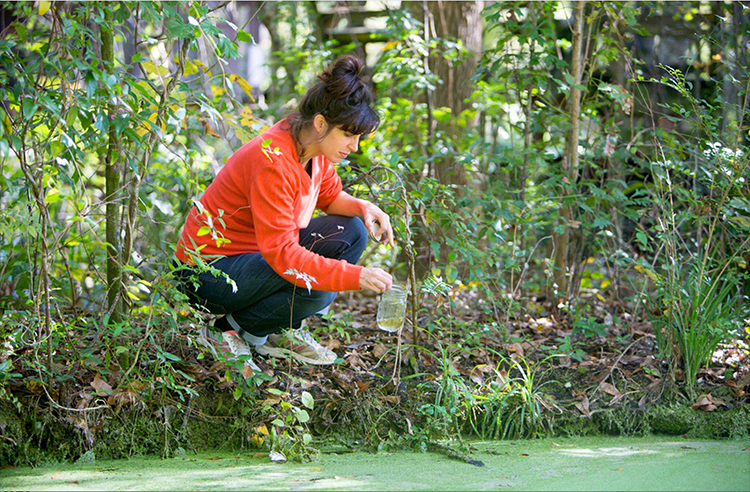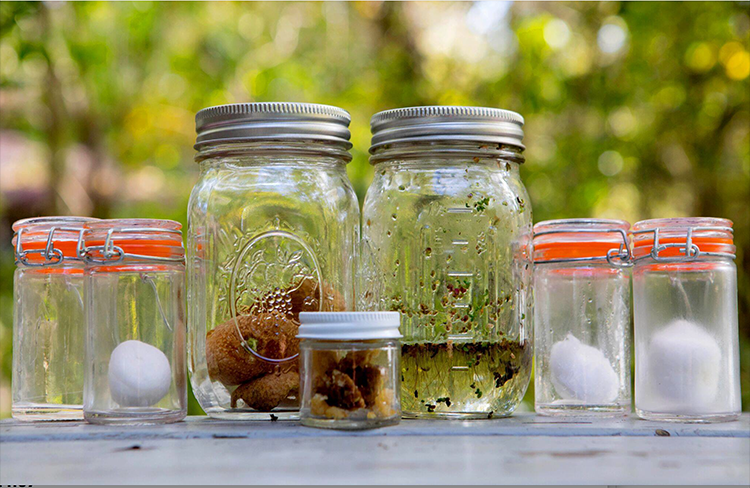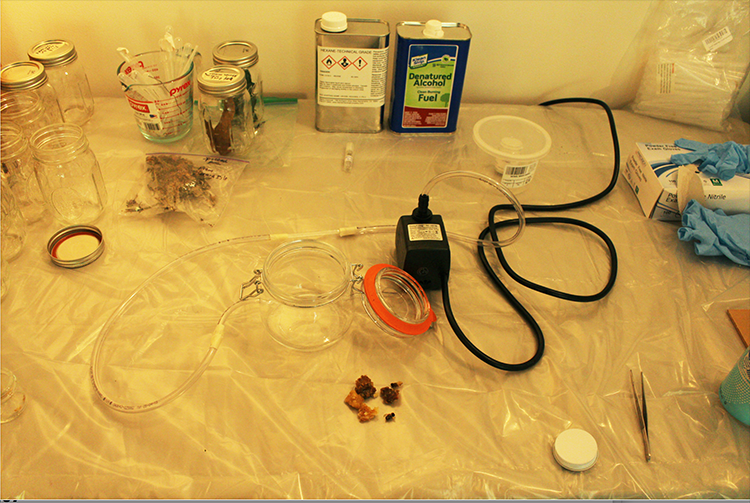Golden waste, ongoing research started in 2017
Here you always have to learn how to adapt, and that would be a good think in your smell project, How do you learn how to adapt through smell? When you got to your grandparents house, that smell in their house as nothing to do with the smell in your house, never!
Nicky Alfonso professional fisherman.
Delacroix, Lousiana, US
Specifically more than any of our other senses, olfactory memories have a way to recall the most intense emotional interactions we have experienced during our life, bringing forth the deepest of memories. In this way, I would like to continue to develop a work that began last Summer around scents and olfactive memory from locations in New Orleans (US) and its surrounding by extracting scents from strategically chosen historic areas affected by coastal erosion (outside, natural environment with water and soil extraction as well as scents from inside people's homes, and sentimental objects belonging to residents).
All productions for the extraction of scents begin with distillation, followed by the Headspace technique,and finalized through synthesis, in collaboration with the swiss perfumer Andreas Wilhelm. These fragrances may be the last olfactory documents created in these disappearing environments, thus giving an almost eternal life to these ephemeral scents.
The work of extraction of domestic and natural scent can only be carried out by the collaboration of the inhabitants as well as their precious testimonials and especially in close collaboration with the fishing communities. They are the one that are facing directly the issue with coastal erosion and the environmental problem. I have the wish to hear their memories, and to give them the chance to keep an olfactory memory, of their territories. As a gifts and memories every scent will be given in a bottle for each person who collaborated.
My goal is to leave a lasting impact with these regional communities along with their respective inhabitants by providing them with an opportunity and way to express their emotions and sensitivities about climatic challenges and the issues that face them. The second step would be to disseminate these issues to a wider national and international audience, in hopes to build additional awareness of these environmentally impacted areas. Furthermore, it could be used for educational purposes and in close collaboration within various school or Universities programs, by giving children and young adults access to an olfactory sensitivity, all the while educating them about regional environmental issues.
*To start this research I received the support from Tulane University in New Orleans,US, by receiving two differents grants: The New Orleans Center for the Gulf South, Monroe Fellowship, Tulane University, New Orleans, US and the Studio in the Wood residency program, New Orleans, US both in 2018.
—Photography taken during by Residency at the Studio in the Wood in 2018: Sabree Hill / Manon Bellet










